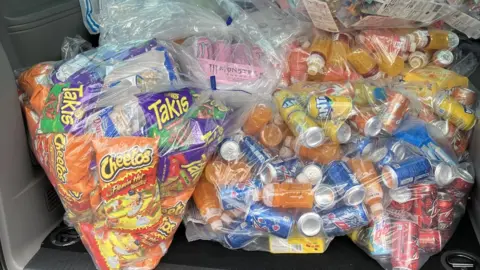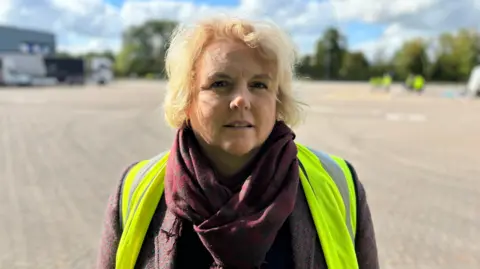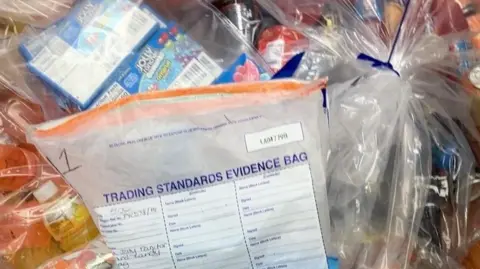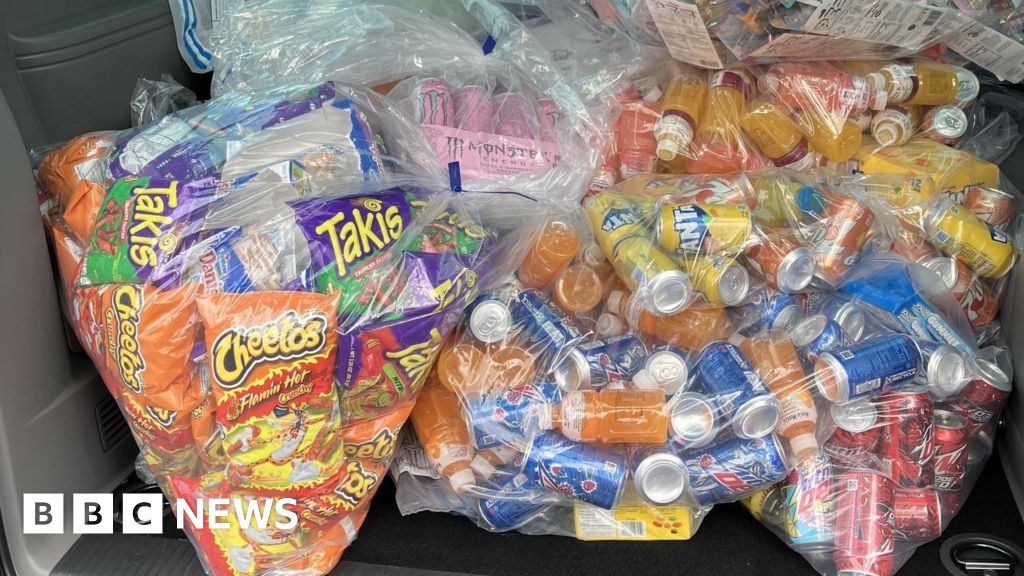 BBC
BBCIllegal sweets from the US are being found “every day”, trading standards has said.
Banned American “candy”, as well as crisps and fizzy drinks, were seized from a shop in Leek, Staffordshire on Friday, following a tip-off from a member of the public.
The products contained unauthorised ingredients, with some linked to cancer and organ failure, county trading standards officers said.
The operation comes after more than 3,000 sweet products worth £8,000 were seized from 23 shops in the county last year.
“Every day we’re finding these sweets,” said Stephanie Young from the county’s trading standards team.
“I don’t think there’s any town centre where there won’t be someone selling sweets with an unauthorised ingredient in it.”

The products recently seized included Jolly Ranchers, which are hard sweets containing mineral oil, which has been linked to cancer formations.
Other products included the drink Mountain Dew, which contains EDTA, banned in drinks in the UK.
In animal studies, among other things, the compound has been linked to reproductive and developmental issues and cancer of the colon.
Other products taken off the shelves included US versions of Cheetos crisps, Prime energy drinks and Pineapple Fanta, as well as illegal tobacco and vapes.
The owner of the shop in Leek would be investigated and the seized items would be destroyed, said trading standards.
‘Fuelled by influencers’
Banned sweets found in Worcestershire earlier this year prompted warnings to parents.
Ms Young said the popularity of this type of confectionery was on the rise, having been fuelled by social media and influencers.
“Where there is that appeal through the social media platforms, people want a bit of it,” she explained.
“You have got influencers out there. People want to be part of that story… and they’re prepared to pay the price for it.”
Ms Young added her team would continue to try and disrupt the trade.
“There is a lot of money to be made and some of it does link back to organised criminality,” she said.
“I’m confident that the more disruption we do, the greater impact we’re having to stop that product being sold and potentially people’s lives then being compromised.”



